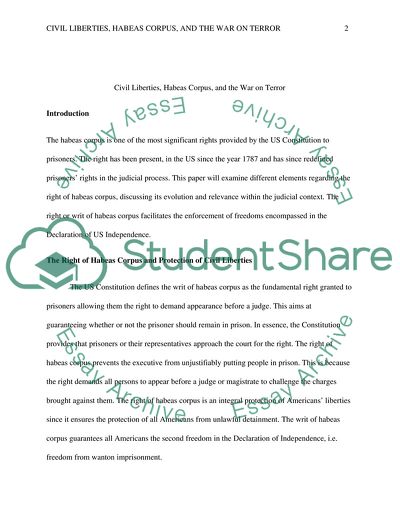Cite this document
(Civil Liberties, Habeas Corpus, and the War on Terror Case Study Example | Topics and Well Written Essays - 1500 words - 4, n.d.)
Civil Liberties, Habeas Corpus, and the War on Terror Case Study Example | Topics and Well Written Essays - 1500 words - 4. https://studentshare.org/law/1780573-civil-liberties-habeas-corpus-and-the-war-on-terror
Civil Liberties, Habeas Corpus, and the War on Terror Case Study Example | Topics and Well Written Essays - 1500 words - 4. https://studentshare.org/law/1780573-civil-liberties-habeas-corpus-and-the-war-on-terror
(Civil Liberties, Habeas Corpus, and the War on Terror Case Study Example | Topics and Well Written Essays - 1500 Words - 4)
Civil Liberties, Habeas Corpus, and the War on Terror Case Study Example | Topics and Well Written Essays - 1500 Words - 4. https://studentshare.org/law/1780573-civil-liberties-habeas-corpus-and-the-war-on-terror.
Civil Liberties, Habeas Corpus, and the War on Terror Case Study Example | Topics and Well Written Essays - 1500 Words - 4. https://studentshare.org/law/1780573-civil-liberties-habeas-corpus-and-the-war-on-terror.
“Civil Liberties, Habeas Corpus, and the War on Terror Case Study Example | Topics and Well Written Essays - 1500 Words - 4”. https://studentshare.org/law/1780573-civil-liberties-habeas-corpus-and-the-war-on-terror.


